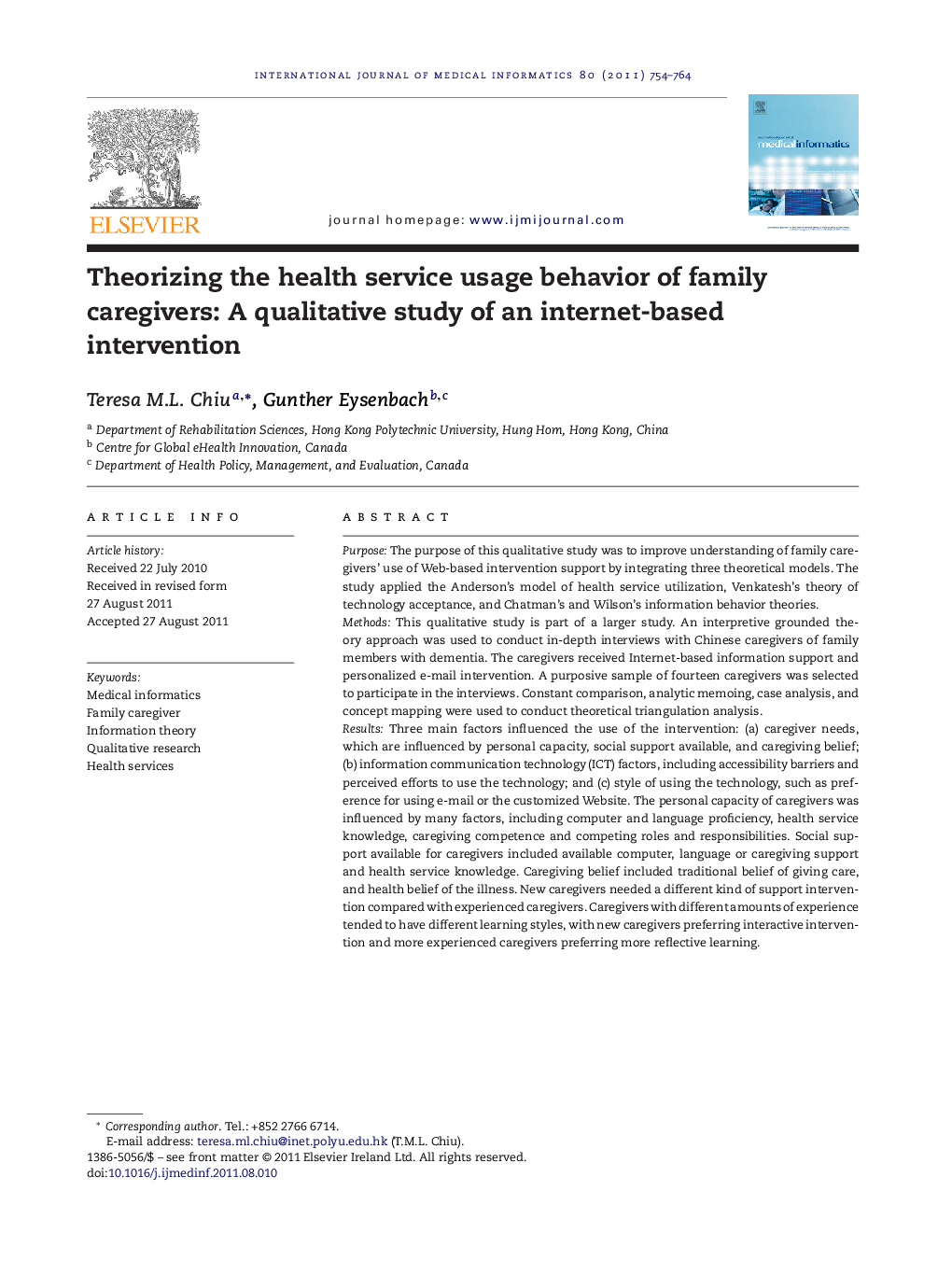| Article ID | Journal | Published Year | Pages | File Type |
|---|---|---|---|---|
| 516360 | International Journal of Medical Informatics | 2011 | 11 Pages |
PurposeThe purpose of this qualitative study was to improve understanding of family caregivers’ use of Web-based intervention support by integrating three theoretical models. The study applied the Anderson's model of health service utilization, Venkatesh's theory of technology acceptance, and Chatman's and Wilson's information behavior theories.MethodsThis qualitative study is part of a larger study. An interpretive grounded theory approach was used to conduct in-depth interviews with Chinese caregivers of family members with dementia. The caregivers received Internet-based information support and personalized e-mail intervention. A purposive sample of fourteen caregivers was selected to participate in the interviews. Constant comparison, analytic memoing, case analysis, and concept mapping were used to conduct theoretical triangulation analysis.ResultsThree main factors influenced the use of the intervention: (a) caregiver needs, which are influenced by personal capacity, social support available, and caregiving belief; (b) information communication technology (ICT) factors, including accessibility barriers and perceived efforts to use the technology; and (c) style of using the technology, such as preference for using e-mail or the customized Website. The personal capacity of caregivers was influenced by many factors, including computer and language proficiency, health service knowledge, caregiving competence and competing roles and responsibilities. Social support available for caregivers included available computer, language or caregiving support and health service knowledge. Caregiving belief included traditional belief of giving care, and health belief of the illness. New caregivers needed a different kind of support intervention compared with experienced caregivers. Caregivers with different amounts of experience tended to have different learning styles, with new caregivers preferring interactive intervention and more experienced caregivers preferring more reflective learning.ConclusionsThis study reinforced the findings of the larger quantitative study that it is important to address both care-giving needs and technology factors in Internet-based intervention. The quantitative study found that less competent caregivers with more positive attitudes towards technology tended to use the intervention more frequently. In this qualitative research, the findings revealed that caregiver needs, ICT factors, and style of use explained the pattern of intervention use. This new conceptualization has integrated information acceptance, health service utilization, and information behavior theories. More studies will be needed to confirm if the proposed concept can explain or predict the usage behavior in other Web-based interventions.
► Both caregiver needs and technology factors are important in ehealth interventions. ► Personal capacity, social support and caregiving belief affect caregiver needs. ► ICT factors include accessibility barriers and perceived ease of use. ► New and experienced caregivers have different service preferences.
